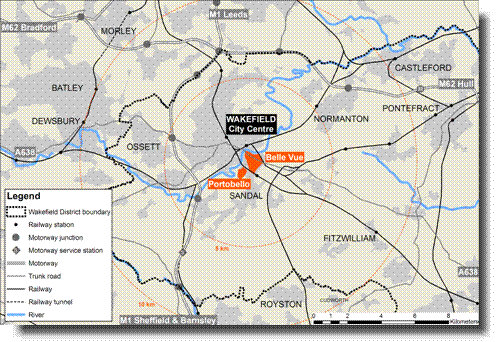Project overview
Introduction
Interest in housing improvement schemes has grown in recent years with the implementation of the most ambitious and comprehensive modernisation programme ever undertaken in this country, the Decent Homes programme. However, relatively little is known about their impact and there has been little comprehensive and holistic research into this important area. This study, which has been funded by the housing association, Wakefield and District Housing (WDH), seeks to address this 'gap' in knowledge.
Drawing on a range of qualitative and quantitative data collected over a four year period, it assesses the impact of the improvement programme undertaken in the Portobello and Belle Vue areas of Wakefield. The study, which placed particular emphasis on exploring the 'lived' experiences of residents, and used a range of seldom used (in policy evaluations) 'alternative' research techniques, such as photography (photo novella), solicited resident diary keeping, and film-making.
About the research
Two of the first areas in Wakefield to see their housing improved by WDH (between 2007 and 2008) were the neighbourhoods of Portobello, a social housing estate where WDH owns most of the housing stock, and Belle Vue, a mixed tenure area, which are highlighted on the map below.

The physical environment of these areas has also been improved by WDH, although in Portobello this programme is still ongoing and will not be completed until early 2012.
In 2006, WDH appointed CRESR to undertake an evaluation of the improvement programmes in both areas, which ran from January 2007 until December 2010. The study team employed a range of quantitative and qualitative research techniques including
- household surveys (more than 500 residents were surveyed before and after the housing improvement programme)
- in-depth interviews with nearly a hundred residents
- a solicited resident diary keeping exercise
- resident photography (Photo novella)
- resident focus groups
- film making – a community film making company, Littlestar, was employed to make films about the study area before and after the improvement programme, both of which are available at this site
- in-depth interviews with more than 80 local 'stakeholders'
- secondary data collection and analysis
